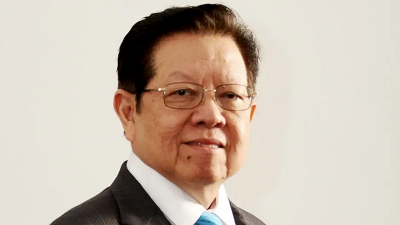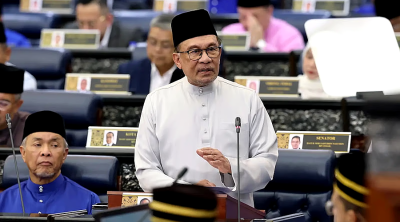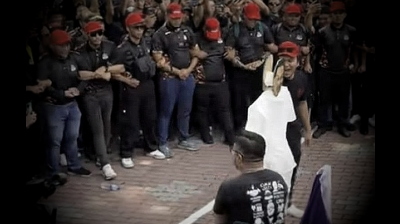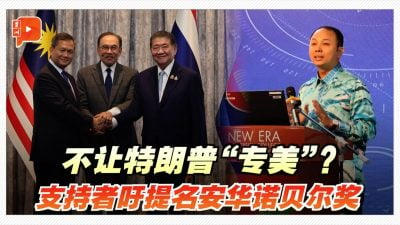Anwar Ibrahim is the icon of the Reformasi movement.
The reform movement was triggered when the then PM Tun Dr. Mahathir threw Anwar into prison in 1998.
In the general election held the following year, although TDM retained the government, his Umno did not get more than half of the Malay popular votes.
Anwar was in jail, but his popularity ran high.
In the recent GE15, 24 years after 1998, Pakatan Harapan (PH), the coalition headed by Anwar, won the most seats but saw their share of Malay votes dwindling to just above 10% (according to unofficial estimates).
Why? What happened? Does this mean that the Malays do not want Anwar’s reforms?
Malays disillusioned with Umno
The outcome of the 15th general election took many political pundits by surprise.
Umno, targeted by all quarters, ran its worst campaign in history.
It was a disastrous defeat for Umno. It confirmed the trend of Malays abandoning Umno that eventually brought down the Umno-BN government in GE14.
Malays could no longer stomach the unbridled corruption and flagrant abuse of power of the Najib Razak regime.
As it turned out, the once marginalized Malay Islamic party PAS emerged as the biggest winner with 49 MPs, increasing by almost 3-fold. Bersatu also benefited albeit to a much lesser degree.
The signal is unequivocal – Malay voters have lost their faith in Umno. The colossal IMDB crime shattered whatever illusion they had of Umno as the rock, champion or protector of Malay interests.
Have the Malays embraced PAS’ Islamic agenda?
Is this switch to PAS an indicator that the Malays subscribe to PAS’ agenda to make Malaysia an Islamic state?
My view is that this switch is incidental. The Malay man-in-the-street is uneasy about having PH as the government.
Would the Malay power slip out of their hands? Would they “become poor again in their own land”? This is a false narrative, but one that is easy to sell, especially to first-time voters. What’s more if that insecurity is fanned by the “duty to defend Islam”!
Refuge vote in PAS, Bersatu
I would say that they didn’t actually vote for PN but took “refuge” in PAS and Bersatu while waiting for a better Malay party to emerge, for example, a reformed Umno.
Can this unity government led by Anwar Ibrahim be the alternative?
Reform is not anathema to the Malays. They do not reject reform per se. The renunciation of Umno is nothing less than an act of rebellion or defiance.
The seed of reform is not alien to the Malay society. More pertinent are the questions: What type of reform? Who benefit? Which leader to trust?
Skewed implementation of NEP
The Malays are at a crossroads. Needless to say, they are witnessing rapid modernization thanks to the New Economic Policy.
Yet at the same time, they also experience stark disparity between the rich and the poor within their own community due to the skewed implementation of the NEP.
After half a century of NEP, many rural and urban Malays still struggle to earn a meager living while politically well-connected Malays amass wealth under the guise of NEP.
Meanwhile, the lower bands of the M40 are slipping and sliding into B40.
This social injustice fueled the Reformasi Movement in 1998. The sacking (from Umno) and jailing of Anwar Ibrahim was the spark that ignited the prairie fire.
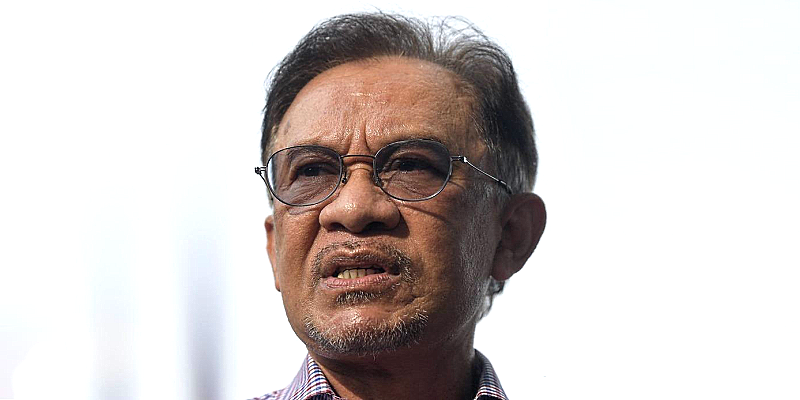
Malay support for PKR dwindles, non-Malay support augments
It is bizarre that PKR, the Malay-based multi-ethnic party which thrived on the Reformasi agenda, has seen diminishing Malay support.
Conversely, more and more non-Malays are now supporting PKR or PH with its multi-ethnic branding.
Just as the Malays dumped Umno, the non-Malays dumped Umno’s allies, the MCA and MIC in favour of DAP.
Contrary to the propaganda of Umno, Bersatu and PAS, non-Malays do not oppose the special position and rights of the Malays. They can relate to the wish of the Malays to elevate their social and economic status.
What they oppose is corruption, abuse of power, wastage and leakages of the predominantly Malay government.
This heavy tilt of non-Malays towards PH may have exacerbated the insecurity of the Malays. In short, the identity factor is still very much prevalent and warrants attention by the new government.
Imperative for PKR, Amanah to win more Malays to their side
PH has maxed out non-Malay support to the hilt. So, lamentable is the state of affairs that on its own, without an augmentation in Malay support, it is not able to form a government!
It is imperative that PKR and Amanah garner more Malays to their side.
Get real: impossible that Malaysia be governed by one ethnic group
Would they turn to the Islamic State option?
Instinctively, that might appeal to some Malays but with reasoning they will realise that it is nigh impossible to impose on a multi-ethnic Malaysia.
If by a stroke of misfortune Perikatan were to form the government, it would represent only Malay-Muslim interests without any elected non-Malay MPs.
Nobody, not even the Malays who voted for them, knows what will happen to the country.
Both national and international communities are not willing to accept such a government.
The reality of Malaysia’s polity is that no one ethnic group can rule the country at the exclusion of other groups; it is even more unrealistic to turn Malaysia into an Islamic state.
The sooner we come to terms with this reality the better.
In fact, this realisation is central to Anwar Ibrahim’s ideology.
He has steadfastly held on to this belief ever since he formed the multi-ethnic PKR.
As the historic first PM coming from a multiracial party, he can make this happen.
Those who share this vision must throw their support behind him.
Do Malays want reforms?
Of course, they do!
Ketuanan Rakyat or “Supremacy of the People” popularised by Anwar, is the catchword of the day.
Anwar is committed to helping the poor regardless of race. His government is a needs-based, not race-based caring government. The most needy, he said, are in fact the Indians and Orang Asli.
He is addressing issues of rising cost of living for all ethnic groups across the board.
It would be better if some form of meritocracy be introduced within the Malays.
Wherever possible, incentives can be given to encourage them to work together with the more established non-Malay companies.
There is no shortage of ideas. What is lacking is political will and leadership. With an energised unity government headed by Anwar and backed by the reformist PH, change is already en route. We must raise the consciousness of the people.
Some may argue that given the sensitivities of the Malay community, it would be prudent not to introduce any reforms lest we step on their toes.
I beg to disagree. As long as the special positions and rights enshrined in the Constitution are not challenged, the Malay community is receptive to reforms.
In terms of structure, the present unity government is not unlike BN that ruled Malaysia for the last 60 years and was overwhelmingly supported by the Malays.
It is essentially a Malay-majority government with non-Malay representation, reflecting the social composition of our country.
The structure of Anwar’s government may be the same but the direction is different.
Its vested interest is the rakyat at large, especially the poor of all races, rather than politicians, their cronies and families.
Since his installation, PM Anwar has undertaken several measures favourable to reforms. We earnestly hope they will come to fruition soonest. Everyone is eagerly watching and waiting with bated breath!
The unity government has no time to rest! They have to be accountable to the people who put them in the corridors of Putrajaya.
Seeing is believing. The rakyat want to see a new political culture of leaders dedicated to serving the rakyat in their plans and actions.
How wonderful it would be if all Malaysians, young and old alike, strove for the principles of the Rukun Negara to reign, in our country and in our hearts. And lest we forget, proclaim its Preamble again and again:
Indeed, our country Malaysia aspires to achieve greater unity for all her people:
– Maintaining a democratic way of life;
– Creating a just society in which the wealth of the nation shall be equitably shared;
– Ensuring a liberal approach to her rich and diverse cultural traditions, and
– Building a progressive society which shall be oriented to modern science and technology.
(Charles Chia is Member of Monsoons Malaysia.)
ADVERTISEMENT
ADVERTISEMENT







